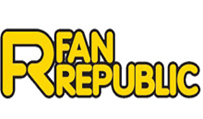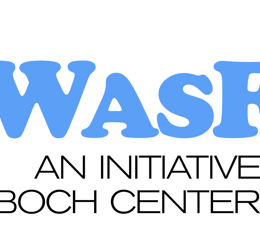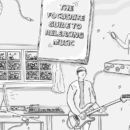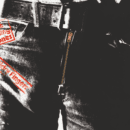 Tom Ingram
Tom Ingram
Owner / Founder Viva Las Vegas
Years with Company: 17
Address: P.O. Box 5940, Los Alamitos, CA 90721
Phone: 562-496-4287
Web: http://vivalasvegas.net
Email: [email protected]
Clients: Los Straightjackets, the Sun Rockabilly Show, Sonny Burgess, the Chop Tops, the Trashmen, Carl Mann, Hayden Thompson & Narvel Felts, Imelda May, Lloyd Price.
BACKGROUND: A fan of rockabilly since he was a teenager, Tom Ingram began as a DJ promoting shows in his native England. Eventually, this blossomed into Viva Las Vegas, a sprawling festival devoted to all things ‘50s, including a car show, burlesque and more. Up to 20,000 fans will attend the 17th annual event, which includes 65 bands and runs from April 17 to 20.
DJ Roots:
London had such a big rockabilly scene. I became the main rockabilly DJ in London for years. So then I felt, you can’t DJ forever. That’s what gave me the push to get into promoting. I only DJ when someone really wants me to. I don’t DJ for money anymore; it’s just something I want to do. I was very fortunate to be part of that London rockabilly scene in the ’80s and early ‘90s.
Know Your Genre:
[Rockabilly is] the sort of music I’ve always been involved in. If you’re part of a scene and understand it, you know what to put on. If you’re just someone who thinks, oh yeah, I hear rockabilly’s big, I’ll put on a rockabilly event, you’re not going to know who to book. It’s the same way with any other sort of music. If I was to try and do a reggae event, I wouldn’t have a clue who to book.
Giving People What They Want:
People who are into the ‘50s music scene are into ‘50s cars, ‘50s clothing and ‘50s culture, so it’s all part of what people want as a rockabilly weekend. That’s why the car show is strictly pre-‘63 and period correct. We used to do a small car show at my events in England, but it started with just having a place for people with old cars to park together. So the car show sort of grew on its own. I underestimated how big that would become.
The entertainment in Vegas, if you’re under 60, wasn’t that exciting, which is part of the reason I think Viva Las Vegas became so successful. There wasn’t anything in the way of alternative music. Viva Las Vegas was really the first big event that catered to a crowd who wanted something that wasn’t Top 40.
Choosing Acts:
Being part of the scene, I know most of the bands. I get between 500 and 700 submissions each year from bands wanting to play. Fifty percent of them are totally wrong for the event and the other 50% I go through and it’s just what I think sounds good, will suit the event and give a good balance of ‘50s music. I go through every submission. The easiest way [for bands to submit material is with] a link to their ReverbNation page or a link to their website. That’s far more convenient than having to unpack a CD. I much prefer that to having attachments or getting stuff in the mail.
Being Specific:
I have a contract that tries to cover everything. What I don’t like is grey areas. If you get everything out in the open in the beginning, then people know exactly what they’re getting—what I’m getting from the band and what the band’s getting from me. It avoids a lot of problems on the day. For example, we have drums, basses and even guitars, so if a band is flying and they don’t want to bring any instruments, they don’t have to. But we let them know beforehand exactly what we have.
Getting Paid First:
Every band gets paid. No one plays for free and no one has to pay to play. I’m strict on that. I think everyone should be paid something. Three weeks before the event, everyone gets a check for their support, which they can deposit right away. That means the band comes to the event having already been paid. If a band goes on not having to worry about getting paid, they perform better. Also, with so many bands, obviously I’m not carrying everyone’s money. The truth is we’re too busy to deal with paying so many bands at the event. This makes life much easier.
I actually reimburse bands the same day they buy their flight. You can’t promise to pay someone not knowing how you’re going to pay them. I’ve heard stories of promoters who rely on the money they take in on the day. To me, that’s not being a promoter. The people who are working for you don’t know whether you’ve taken in enough money or not. Either pay them in advance or get the money out of the bank before the event and have it with you.
Start Small:
The most important thing promoters have is their reputation. So if you’re going to organize shows, don’t start too big. Start at a size that, if no one shows up, you can afford to pay everyone. That will do more for your reputation than anything. If you’ve got bands, no one shows up and you pay them all, when you do your next event those bands are going to be more than happy to work for you again, probably at a special price.
I hear horror stories of people who put on a big event, lose a fortune and then say, right, I’m going to do another one and the profits from the next one will be used to pay all the people I owe for the first one. And they do the second one, which loses money. Now they’ve got two lots of people they owe money. This is what happens when people run before they can walk.
Spreading Out:
One of the problems with doing an event like this is you’ve got lots of different things scattered all over the place and controlling it is difficult. It takes a lot of staff and overseeing. If I was to grow, I’d be adding more venues and the only one they’ve got left is the arena. I’ve got a new event starting in October which will be a small rockabilly event of about 1,500 people at Gold Coast Hotel. So, rather than adding more to Viva Las Vegas, I’m doing a second event. I think that’s the way to move forward.
The Viva Difference:
Viva Las Vegas is the biggest rockabilly festival in the world and it always looks good to be on the biggest event. But another thing is a lot of rockabilly bands just play their local bar where half the audience doesn’t care whether they’re there or not. The chance to play to a large audience of enthusiastic people is a big deal for them. And another thing is that a lot of bands, as soon as their names appear on my flyer, get loads more bookings.
The Tax Man:
The state of Nevada makes it very difficult with the amount of permits, licenses and taxes. It’s like everyone’s got their hand out. I have to have a promoter’s business license. And I have to have an admission charge license, which just seems silly. We have about 120 vendors and every single vendor has to charge a one-time use sales tax that we’re responsible for collecting. So we’re actually tax collectors. That sort of thing makes it very hard.
Keeping the Past Alive:
Ruth Brown had been ill for a long time. I persuaded her to play and only do her ‘50s recordings. She kept saying to me, are you sure people are going to like it? Are you sure they want these songs? I said, yes, people are going to love it. Just as she’s walking on the stage, she says, if people throw tomatoes at me I’m going to blame you. I said, don’t worry, they won’t. And she went down a storm. She was in tears as was the audience. It went well.
Master Your Domain:
Someone who’s thinking about promoting should treat it like a business. Present yourself in a positive way. Any business who uses Gmail, Yahoo. etc. looks smalltime. If you’re serious, you have to have your own URL and email address connected to that. It presents a far better image. It’s not just what you do at the event. It’s the whole thing.











